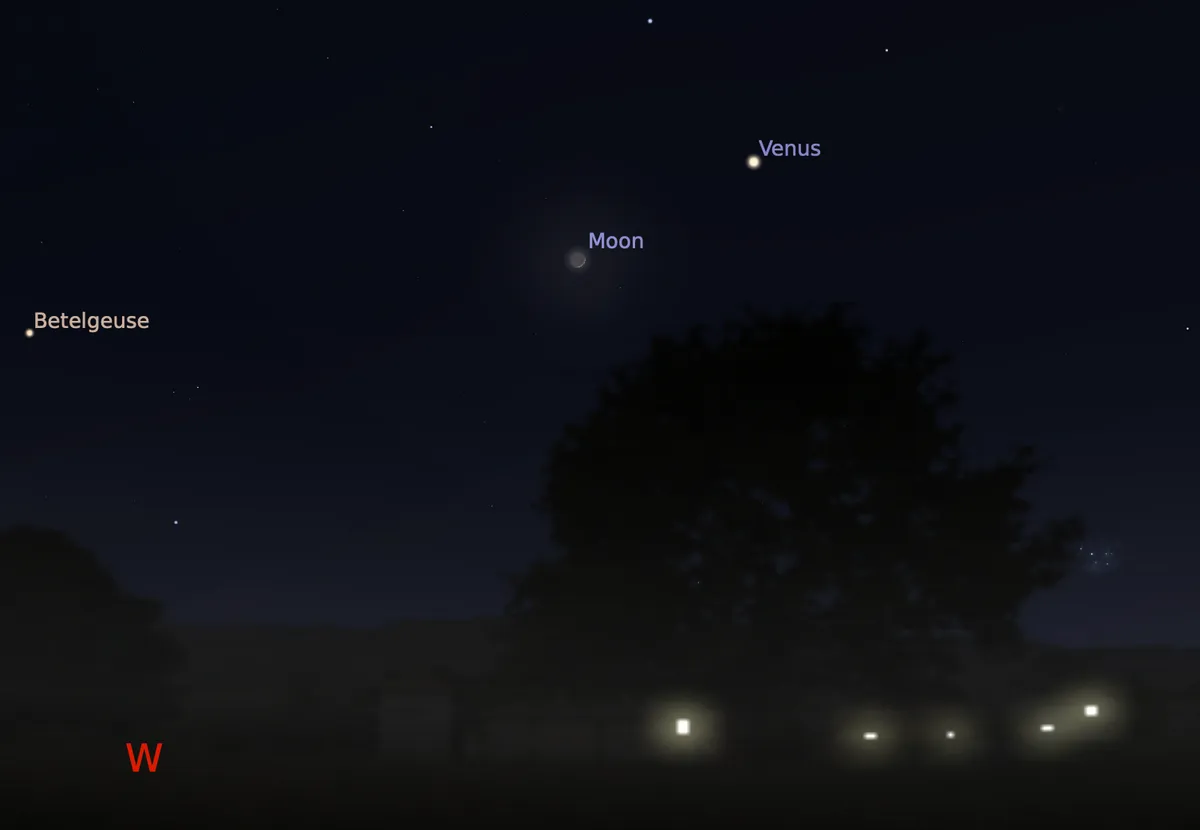It's difficult not to spot it. Anyone who has stepped out in the early evening over the past few months and looked up will unlikely have seen the planet Venus shining brightly in the night sky. The 'evening star', as it is currently known, appears to be just that: the brightest star in the evening twilight, retaining its brilliance as dusk turns into darkest night.
Read more about observing Venus
- Capture a shadow cast by the planet Venus
- How to see the green light of Venus
- Can you see Venus's ashen light?
Of course, Venus is a planet, second from the Sun in our Solar System and a close celestial neighbour of Earth. But if you've been wondering what that bright 'star' is in the night sky, chances are you've probably been observing Venus.
Venus and the Moon are going to look pretty stunning over the next few nights, as the Moon begins to wax into a beautiful crescent, with Venus sitting right beside it.

How to see Venus this weekend
- On Friday 24 AprilVenus will be seen in the west just above the horizon, following the setting Moon as it dips lower. If you have a good view of the horizon, look for it as the sky gets dark.
- On Saturday 25 April Venus reaches 30% phase and will be seen in the evening sky to the west after sunset. A crescent Moon will be seen slipping below the planet.
- On Sunday 26 April Venus will appear just 6.5° from a crescent Moon, again in the west as the sky gets dark. 6.5° is about the width of 3 or 4 fingers held out at arm's length.
As April comes to an end, the planet will become less of a highlight in the evening sky. It's been a regular and reliable fixture for months now, but by the end of April Venus will set 4 hours after the Sun. That's 1 hour less than it did at the start of the month.
By the start of May, Venus will set just shy of 4 hours after sunset, with brighter evenings allowing just 1.5 hours of viewing against a properly dark sky.
By the end of May, Venus will set just 30 minutes after sunset and by early June, the planet will have begun its transition from an evening to a morning object.
Be sure to make the most of this incredible sight before it disappears from the evening sky.
Iain Todd is BBC Sky at Night Magazine's Staff Writer. Thanks to Pete Lawrence for his Venus-observing tips.
